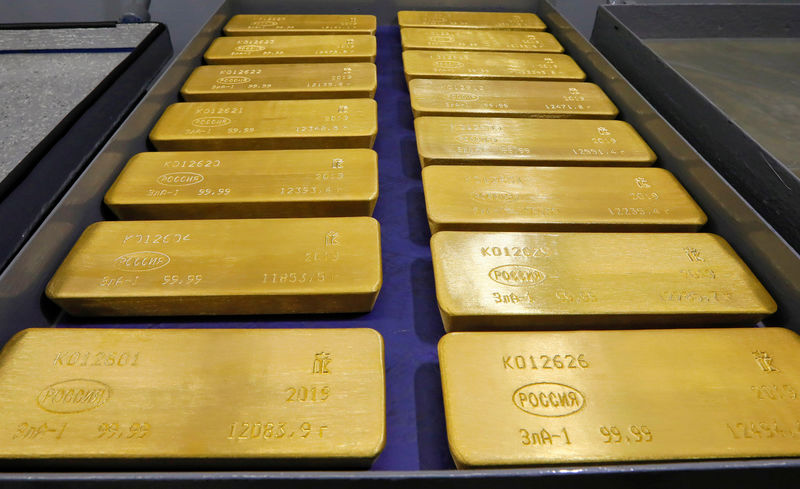(Bloomberg) -- Gold traded near $1,900 an ounce, edging closer to its all-time high set almost nine years ago, as concerns about global growth buoyed haven demand.
Increasing signs that the prolonged coronavirus pandemic is stalling an economic recovery and the recent surge in tensions between the U.S. and China are underpinning demand for the metal. Bullion is heading for a seventh weekly gain, the longest stretch since 2011, while silver is poised for its biggest weekly advance in about four decades.
Negative real rates, a weaker dollar, concerns over the economic cost of the health crisis and geopolitical uncertainties have put both precious metals on track for their biggest annual gain in a decade. UBS Group AG (SIX:UBSG) raised its near-term forecast for gold to reach $2,000 an ounce by the end of September, citing its qualities as a diversifier in a low-rate world.
“When interest rates are zero or near zero, then gold is an attractive medium to have because you don’t have to worry about not getting interest on your gold and you see the gold price will rise as uncertainty in the markets are rising,” Mark Mobius, co-founder at Mobius Capital Partners, said in a Bloomberg TV interview. “I would be buying now and continue to buy, because gold is really on a run, it’s doing well.”
Spot gold declined 0.1% to $1,885.52 an ounce at 9:16 a.m. in Singapore. Prices touched $1,898.34 on Thursday, nearing the record $1,921.17 hit in September 2011. Spot silver rose 0.3% to $22.6566 an ounce, and is poised for the biggest weekly advance since 1980.
While spot gold prices are about $40 away from the all-time high, some futures contracts on the Comex are already trading even higher, potentially leading to a situation that may see the incoming most-active contract already at a record. December, which is likely to become the contract with the most open interest in coming days, touched $1,927.10 an ounce Thursday, above the record for the most-active contract of $1,923.70 reached in September 2011.
On the geopolitical front, Secretary of State Michael Pompeo cast China’s leaders as tyrants bent on global hegemony. His comments came after the U.S. unexpectedly ordered China to close its consulate in Houston within 72 hours, following what it said were years of espionage directed from the diplomatic compound against U.S. commercial and national security assets. China rejected the accusations and vowed to retaliate.
©2020 Bloomberg L.P.
